DHAKA
“Your country?”
Our reunion with Elfie and Luis over breakfast at 8am is raucous, not ‘horde-of-Chinese-tourists’ raucous, but getting there. It almost prepares us for Dhaka
This city stuns all the senses, smacks us with visual cacophony. A thick, rumbling, jumble of cars, taxis, buses, shops on wheels, tuk-tuks, bicycles, motorcycles, munchie- wagons, rickshaws, mobile department stores, and pedestrians oozes through the narrow streets, filling them wall to wall, a lava flow of life, incandescent with color, sound, smells. (But not heat. Dhaka in mid-December is cool on our faces.) The buildings forced to the street side must be empty. All seventeen million of Dhaka’s people are on the street, this street.
We’re overwhelmed. And smitten. I wouldn’t want to live here, but what an Olympian feast for the senses.
On wheels and feet we thread through the city behind bouncy Obaidul, tour organizer. I had developed an image of him from our hundreds of emails, efficient, responsive, helpful. The 3D version is all that plus a Jiminy Cricket energy, part bubbly teenager, all responsible adult. When he gets excited his voice jumps an octave.
Bangladesh is the third largest Moslem country in population. Islam is flexible here, tempered by the lushness of Asia. The government is secular. The current Prime Minister is a woman. We visit a mosque, then a Hindu temple. Some women wear head scarves, a few are ‘covered’. Most wrap in variations on the theme of long and flowing, shimmering head to foot in yards of color. We see some in western dress. Few men in the city wear the traditional longis so common in neighboring Myanmar. I miss the grace of those long, soft artistries. Here, the men disappear in the whirl of the women.
Old Dhaka is ripe with ‘sights’ worth this one day. The schedule is full, but thwarted.
The five of us stop traffic. Everywhere people politely ask “Your country?” smile at our responses (USA, Austria, Singapore) and then “Photo please”. Charmed, we oblige, are snapped and ‘selfied’ in all permutations of us , them, alone, in groups, with grandma, with the peculiar little boy over there, with kiddies not quite sure if they want to be involved in all this with these funny looking people, so pale. Teenagers—especially the girls—are very sure. The guys hang back, the girls wade right in. Stunning ‘my name is Annie’ sorts out her family, siblings and anyone in sight for their photos. I’m not surprised the Prime Minister is a Bangladeshi woman.
Me and Dennis, bearded like many older Bangladeshi men, and clean shaven Luis, are mere adjuncts to the wonders of tall Elfie with her silver hair, and young Singaporean Cassandra in blue jeans. We are all swallowed gently by the smiling sweetness of Bangladesh. It’s fun being a Movie Star, nexus of photo op traffic jams. For a while. Bangladeshis are charming, polite, warmly and genuinely kind and friendly. It’s hard to break away from such a welcome, but Obaidul starts waving with both arms and pointing to his watch.
We have a ship to catch.
TO BAGERHAT AND MONGLA
Last night we wander through the cloth market to our ship. It’s after sunset. Dockside in Dhaka is like street side in Dhaka with ships, ferries, dinghies, sniffs, canoes, wheelbarrows, added to the traffic mayhem, and edged with gangplanks and the sludgy river.
Dozens of river ferries stretch way out into the river, long, tipsy skyscrapers. Our 6 single cabins are 2 levels up from the narrow gangplank, portside, far down the ship at the stern. They’re the length of a single bed and 2 feet wider. Martha Stewart might throw a splash of color here and there. We plunk our backpacks. The cabins are comfy, efficient, clean. The fan and electricity work. Toilets are back ‘thataway’. Most are ‘slump and dump’, a few are kinder to aching knees. All start out with toilet paper, a good intention eventually sabotaged by reality. ‘Be Prepared’, I say. Good advice.
We are adopted by three sweet young men on their way to holiday on the far southern coast. (Dennis, Elfie, and I will follow them down there on our own after we say goodbye to Obaidul and Luis in a few weeks). Sale is the spokes guy for his silent, shy partners. “Come, see everything from up there on the roof”. The guys watch over us, lifting cables, holding doors. From the prow the dockside is a sepia collage fading invisible beyond the lights from the ship., slightly dangerous, slightly romantic in the way of 1940’s film noir tropic fantasies. The guys walk us back to our cabins. We’re neighbors. Then Selfie-buddies.
Deck Class passengers stretch out on mats one level below ours, paying $3 to our $12. We all get there at the same time, dawn today.
Barisal dock at dawn is the road company version of Dhaka at dusk, thinned out, but still chaotic. We thread through it quickly and leave the city.
The landscape is the floral doppelganger of the raucous city. It crowds the road, pushing at the horizon and the sky. Tall banana leaves, ragged flags of the plant kingdom, shimmy in the breeze, translucent scimitars of green between us and the heightening sun. The winter gourd vines are still young, roiling and scrambling over the nipa palm roofs of the roadside houses, all big floppy leaves, and too new for buds. Leaves of the taro plants are already green hearts, wide across as an arm’s length, nature’s umbrellas.
The 15th century mosques and 17th century Hindu temple are open spaces in the green, lovely, and both visited by people of both faiths, And us, all barefoot. Right Foot is tolerant. It fits.
Cassandra asks for a’ potty break’. Our driver pulls over by a cluster of palm leaf houses. There is no question if strangers can use the toilet, at the back of the garden, traditional, surrounded by nipa palm leaves and closed off by a piece of cloth hanging from a string. There is no question that we are welcome, or that these kind people will offer us tea and hospitality. Off to one side they fry up rice munchies, gently dust them with spice, and package them for sale in the market. They give us as many packages as they can carry, their livelihood. They are delicious. We offer to pay. Unthinkable. There is no charge for hospitality. Dennis takes and prints photos. These they will accept, a gesture from us. Obaidul suggests it is acceptable within the rules to give a small gift of cash to one of the kids. It is accepted. We leave, visitors from another planet, welcomed.
They have their photos to remember this day. We have far more.
There are people in our country who dismiss the rest of the world as “sh*thole countries” and their inhabitants as “thieves, murderers, rapists, terrorists”. To them I say. “Stop looking in your mirrors. Look here.”
SUNDARBANS
The southern half of Bangladesh slips gently into the Bay of Bengal, the landscape more liquid than solid, a waterworld. This is the Sunderbans, the world’s largest mangrove forest. We will float through its green canyons for two days, just the 5 of us, Obaidul, and a crew of two, plus cook, and two captains, young brothers. We sort out our cabins below, the others in cabins with bunks. Dennis and me crawl into the low one under the bow with portholes both portside and starboard. Then we all go topside for ‘milk tea, not sweet’.
Bengal Tigers live here. There are 100. Nowhere else in the world are there so many. This is their last stand. They survive on the abundant Spotted Deer. And on the occasional human. One of our crew survived a tiger attack. He was asleep in his small fishing canoe, a defenseless snack for a hungry feline. The tiger pounced. Other fisherman scared it off. He carries his injuries still, too weakened to fish, but a good addition to our boat crew. He helps us when we climb from our boat into the canoes we use to move silently through the mangroves.
If we’re very lucky we might see a tiger. At a distance.
We float and wander in one of the planet’s magic places. On land, for wildlife walks, we have a guide with a rifle (see above paragraphs). We don’t need it. It doesn’t work, anyway, for which all are thankful…details on request.
In the canoes we are quiet. Monkeys, mongooses, other fuzzy scurriers, ignore us. The Spotted Deer do not. They freeze. The males have wide, spikey, horny, headdresses, over-developed tiaras, fit for audiences with the Queen, but spectacularly unfit for negotiating dense jungle. Tiger food on the hoof? The brilliant Kingfisher tribe swoop, and flash the sky, emerald, turquoise, ruby, soaring against the mangrove green.
Back aboard the ‘Ghanchil’ (Seagull), Captain Two brews ‘milk tea’ and we sit on long benches around the narrow table, almost filling the deck. There is a roof to block the sun, but the sides are open to the Sunderbans. Cook does magic in his tiny galley. He rolls out dough for fresh roti both days. Then barbecue over a fire on deck. His fresh cucumber and tomato salads are cool refuges from the fragrant heat of the veggie, chicken, or fish mixes, all heaven to the nose and tongue and eye.
We paddle and putt-putt through Sunderbans for two days, up and down fingers of the sea grasping the last wisps of Bangladesh as it slips into the sea. And the last refuge of the tiger as it slips into legend. We see tiger tracks and deep claw slashes on a tree, but never a tiger. It’s a wild place.
That’s enough for us.
KHULNA
We’re freezing.
I’m not sure I get the hang of this tropic thing. Isn’t it supposed to be warm down here in these latitudes drooping south towards the Equator?
It isn’t. We are seriously under-dressed.
Bangladesh is a famous exporter of cloth and clothing. (Read the labels in Walmart.) Surely we will find something here in vibrant Khulna, throbbing utility stopover on our way north to Bangladesh’s historic—and colder— heartland. With Elfie, Cassandra, and Luis as fashion consultants we plan to cruise the men’s shops across the neon strip of the main drag of Khulna’s swirling downtown for something warm, light, backpack squishable, and cheap. If warm, light and backpack squishable they will come home with us and replace our current down jackets, close to their last moults. If just warm and cheap, they’ll stay behind. Elfie’s down jacket comes along for ‘show and tell’ in case we need help to span the language gulf.
First we need to cross Khulna’s main drag. It is a major athletic event, this Running of The Pedicabs in Khulna. It almost warms us.
The Shop Guys recognize blue is not our normal color. They scope Elfie’s sample and are on it in a flash, kind as always, no language needed.
Their shops are filled with the latest fashions for Young Bangladeshi Fat-Free Stud Muffins. We are several decades beyond, well into Loaf-hood. The Shop Guys are endlessly and genuinely helpful. They strip their racks and unpack their shelves. We get close, managing 2 or 3 of the criteria, skirting squishable, but never including cheap. Or the right size.
Bangladesh produces clothing. It must export all of it. We find only Chinese imports, in Chinese sizes. My size 36 waist cannot be accommodated by Chinese size ‘XXXL’. Size ‘S’ is a chopstick cozy. The Shop Guys have unforgivably lithe frames (Chinese size M or L), but don’t comment on ours, at least not in English. In the last of a half-dozen stops, the heaps of Chinese also-rans cover the counters, and we draw a final blank. Quadruple XXXXL, aka The Great Wall, is not available. Shop Guys apologize, start to reconstitute their exploded store. They are, like all the people we meet in Bangladesh, sweet and genuine. And they smile. We’re not so cold now.
We say goodbye, slip out into the neon, and probably into local legend.
Via Cassandra’s SIM card Obaidul promises shopping success, and rescue from frostbite. Tomorrow.
TRAIN TO RAJSHAHI AND PUTHIA
“Who you like? Trump? Obama?”
We watch through the windows. They are aged by wind, monsoon, and dust. What we see is green, but hazy, and Impressionistic.
Puthia is a ramshackle, crowded town, tired, dusty, unremarkable now, worn out by its history. ‘Everyone’ has been through here, and left a mark. Now we are here, blips in its history, leaving nothing, gaining much.
Gods, humans, animals, and improbable beings, mixtures thereof, cover the terracotta walls of an exquisite cluster of small temples. They stare out of their vignettes, sedately or acrobatically, theological whimsies to contemplate. The artistry is sublime, as befits the private chapel of a Queen, now dead a century or more.
There are no human or supernatural figures at the mosque, no distractions. The purity is restful. The call to prayer from a minaret further away fills the silence.
At a temple there are stands selling the usual religious stuff, and lots of kitchen ‘stuff’. “Who buys kitchen stuff at a temple?” says Elfie. I spot a white metal ladle I must have. The seller weighs it. It’s mine for 52 Taka, about sixty cents. Now, Elfie knows.
Bangladesh’s biggest Shiva Temple is far more ancient than the mosques, but it remains important to local Hindus. Women visit its giant black stone ‘lingam’, or phallus, to implore fertility or to assure a good marriage. It is the largest in the world, almost as tall as we are. Size must matter. There are kids everywhere.
They are playing at cricket on a wide dusty field that leads to a broad, and most European looking palace, pinkish, and worn, a remnant of the British Raj.
We are unmissable and irresistible.
“What your country, man?”Says he. “America, man.” Replies I. ‘Man’ is maybe 4 feet tall, all grin and chutzpah, clearly leader of the pack waving and posing behind him. He pops the question we get everywhere. “Who you like? Trump? Obama?” My answer passes muster, gets the usual thumbs up. In this case, a whole forest of them. And we get invited—no, commanded— to play cricket with them.
Right Foot buys me a pass, but Dennis is game. Having long ago accepted that all of our US national sports are and always will be a mystery to me, I am, however, up on cricket, thanks to Obaidul. Here is my take. Somebody throws a ball. Somebody Else tries to hit it with a bat. Wherever happens Another Somebody Else makes up a number. That’s the score. Everybody else drinks tea. They do it all over again, finding new numbers until someone gets dirty, or they run out of tea. Then they take their bats and balls and all get naked in the shower.
Dennis plays a good game. He doesn’t hit any balls. The score is either 3 or 407. Everybody is happy. We take lots of selfies. There are no showers.
‘Man’ and Company have upstaged the monuments a bit. People always do.
We’re still cold. At night, as promised yesterday, Obaidul and our driver, Mubarak, come through. Mubarak knows exactly where to go. It takes about ten minutes, most to squeeze through the crowds to home in on ‘Clothes Street’. From a pile of coats on street stand under garish flood lights, Mubarak extracts not one but two down jackets stamped ‘XXXXL’. They fit, are warm, and cheap, 500 Taka, about $6. Each. Done. Obaidul finds one for 400, less than $5. Done. Mubarak just smiles.
I don’t know what the cricket equivalent of ‘home run’ is, but we’ve hit one again, as we have every day from Day One.
MAHAVIRA
“Grandfather…”
We are in the heartland of ancient Bangladesh. For much of it little has changed under any of the great kingdoms—Buddhist, Hindu, Moslem, British, and Pakistani—that ruled here.
The fields still stretch in patches, brilliant yellow bursts of the mustard seed crop, close to harvest. One rice crop is now flat and golden drying in the sun. Those fields are stubble, the bumps amidst the rice stalks are goats, munching leftovers from the harvest. The next rice crop is thick in the seed beds, green velvet, plush. The villages are dense places, tightly packed houses of mud walls, bamboo, straw, wood, the possibilities of nature, nothing wasted.
Obaidul knows a house where we can get fresh ‘popped rice’. The ingredients are heat, sand, straw, a special kind of rice…and skill. Our hostess heats sand in a metal pan over a wood fire, throws in a handful of gold rice. It pops immediately, white, the gold husk flung aside. She sweeps the rice and husk into a basket sieve with a straw hand broom, its edges roasted brown. From the sieve she pours the white ‘popped rice’ into our hands. It’s warm and almost sweet, delicious. Chicken, ducks, and geese will get the chaff. We have tea, leave a gift, thanks, and the village. It disappears into the green.
From thousands of villages like this one, ancient Bangladesh built greatness.
The great monastery at Mahavira was the largest south of the Himalayas, a center of Buddhism for South Asia. The walled city of Mahastangarh is the oldest in the country, already rising high over these fields when Cleopatra and her Romans we’re frolicking along the Nile. They are mostly rubble now, scattered across the plain, red brick against green, but in some places still monumental, massive, many stories high.
There is enough here in rubble, long stretches of fallen walls, and roofless rooms to fill in the blanks, at least for me. I sense the great city beneath the feet of the many Bangladeshis here on holiday, Moslems and Hindus visiting their shared Buddhist past. They scatter over the layers and staircases, the women brilliant in yards of cloth, soft gems set against the brick.
The young guys are very much into the universal ‘Watch this’ mode of the muscle-rich, brain-poor ‘guy on holiday’, teetering on edges and leaping gaps. I bend to take a photo of a tiny relief close to the ground. From high above I hear “Grandfather”. Way above me, arms waving a significantly expensive mega-camera, and feet flapping a significantly unwise number of inches over the edge of the rubble is a husky, suicidal adolescent in launch mode, ready to jump the twelve feet down onto hard rubble to get the perfect shot of that ‘rara avis’, the ‘Screaming Tourist’ in full alarm mode, screaming “no, no, NO”. Friends and arms prevail, yank him from the edge. He waves, disappears, reappears seconds later down at eye level, all smiles, camera ready, charming, honestly delighted.
I don’t even mind that for the first time in my travels I have been upgraded from ‘Uncle’ to ‘Grandfather’. Not much, anyway.

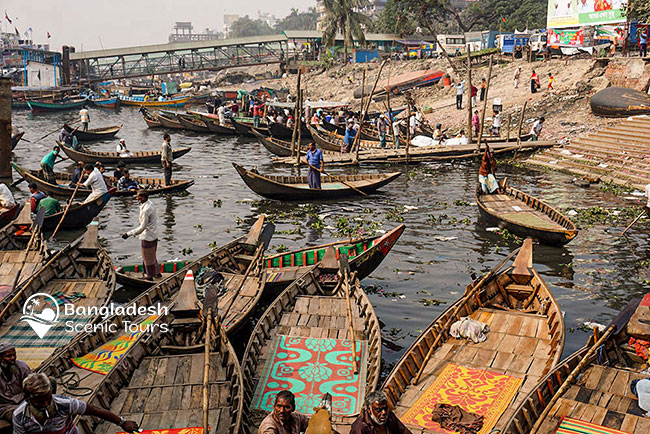
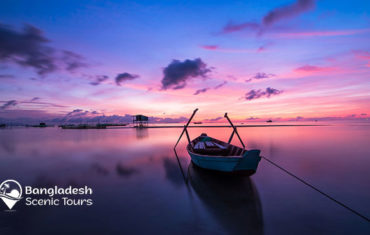
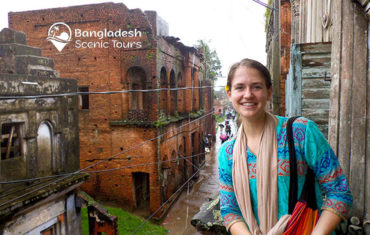
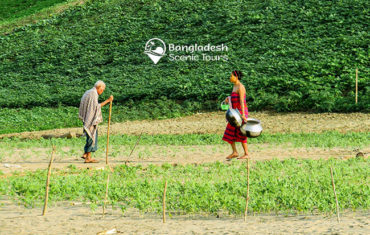
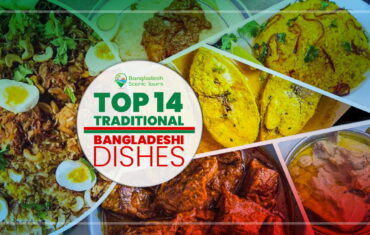
I’m really enjoying the design and layout of your blog.
It’s a very easy on the eyes which makes it much more pleasant for me to come here and visit more
often. Did you hire out a designer to create your theme?
Excellent work!
Hello there!
Thanks for your comment! glad you liked it!
Admin